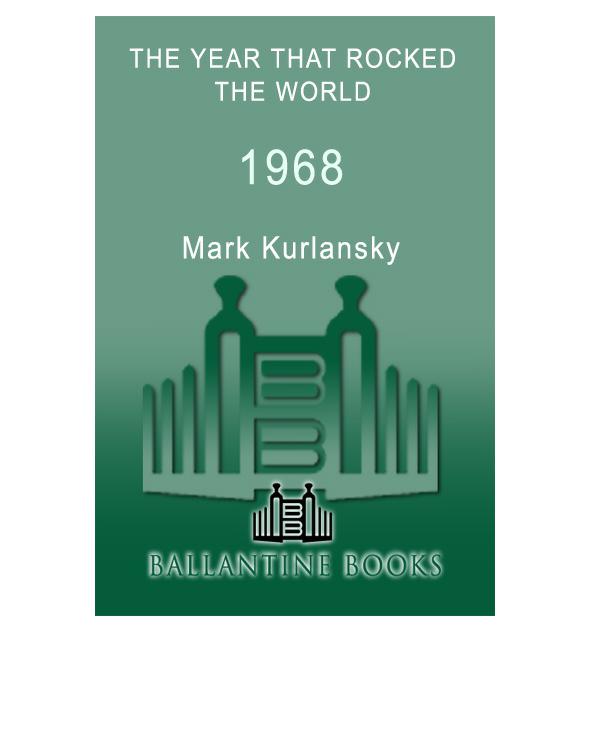
1968
The Year That Rocked the World
کتاب های مرتبط
- اطلاعات
- نقد و بررسی
- دیدگاه کاربران
نقد و بررسی

December 8, 2003
By any measure, it was a remarkable year. Mentioning the Tet offensive, the My Lai massacre, the assassinations of Martin Luther King Jr. and Robert Kennedy, the Democratic convention in Chicago, and the Prague Spring and its backlash gives only the merest impression of how eventful and transformative the year must have felt at the time. As Kurlansky (Cod
, Salt
, etc.) has made the phrase "changed the world" a necessary component of subtitles for books about mundane objects, his choice to focus on a year that so "rocked" the world is appropriate. To read this book is to be transported to a very specific past at once more naïve and more mature than today; as Kurlansky puts it, it was a time of "shocking modernism" and "quaint innocence," a combination less contradictory than it first appears. The common genesis of demonstrations occurring in virtually every Western nation was the war in Vietnam. Without shortchanging the roles of race and age, Kurlansky shrewdly emphasizes the rise of television as a near-instantaneous (and less packaged than today) conduit of news as key to the year's unfolding. To his credit, Kurlansky does not overdo Berkeley at the expense of Paris or Warsaw or Mexico City. The gains and costs of the new ethic of mass demonstration are neatly illustrated by the U.S. presidential campaign: the young leftists helped force the effective abdication of President Lyndon Johnson—and were rewarded with "silent majority" spokesman Richard Nixon. 1968
is a thorough and loving (perhaps a bit too loving of the boomer generation) tapestry—or time capsule. Agent, Charlotte Sheedy.

August 1, 2003
After Cod and Salt, this chronicle is a change of pace for the award-winning Kurlansky.
Copyright 2003 Library Journal, LLC Used with permission.

November 15, 2003
Although it might have seemed logical to follow his successful books " Cod" (1997) and " Salt" (2002) with " Olive Oil," Kurlansky has a different agenda this time out. But what can be gained from yet another Boomer report on the 1960s? Surprisingly, quite a bit. In examining the momentous events of 1968, he refolds the map so the U.S. is no longer the center of student protest. Though this "spontaneous combustion of rebellious spirits around the world"--including countries such as Poland, Czechoslovakia, Germany, France, and Mexico--may have drawn oxygen from the U.S. civil rights movement, other fuel for the fires was locally available: intense generational differences, hatred of the Vietnam War, and the rise of TV news. The role of media resonates throughout. As events unfold season by season, we're reminded that this was indeed the dawn of Marshall McLuhan's "global village." And if we're stirred at remembering the passion of the young protesters, we may be sobered to consider whether we're now living in philosopher Herbert Marcuse's age of technological anesthesia. Despite a sometimes torrential flow of facts and figureheads, Kurlansky's writing remains accessible. He is as adept at discerning the way people move machines as he has been at discussing innovation's impact on people. This is very fine--and surprisingly timely-- although its scope and complexity may keep it from finding the broad popularity of the author's earlier works, where we delighted in the surprising histories of ordinary things.(Reprinted with permission of Booklist, copyright 2003, American Library Association.)

























دیدگاه کاربران